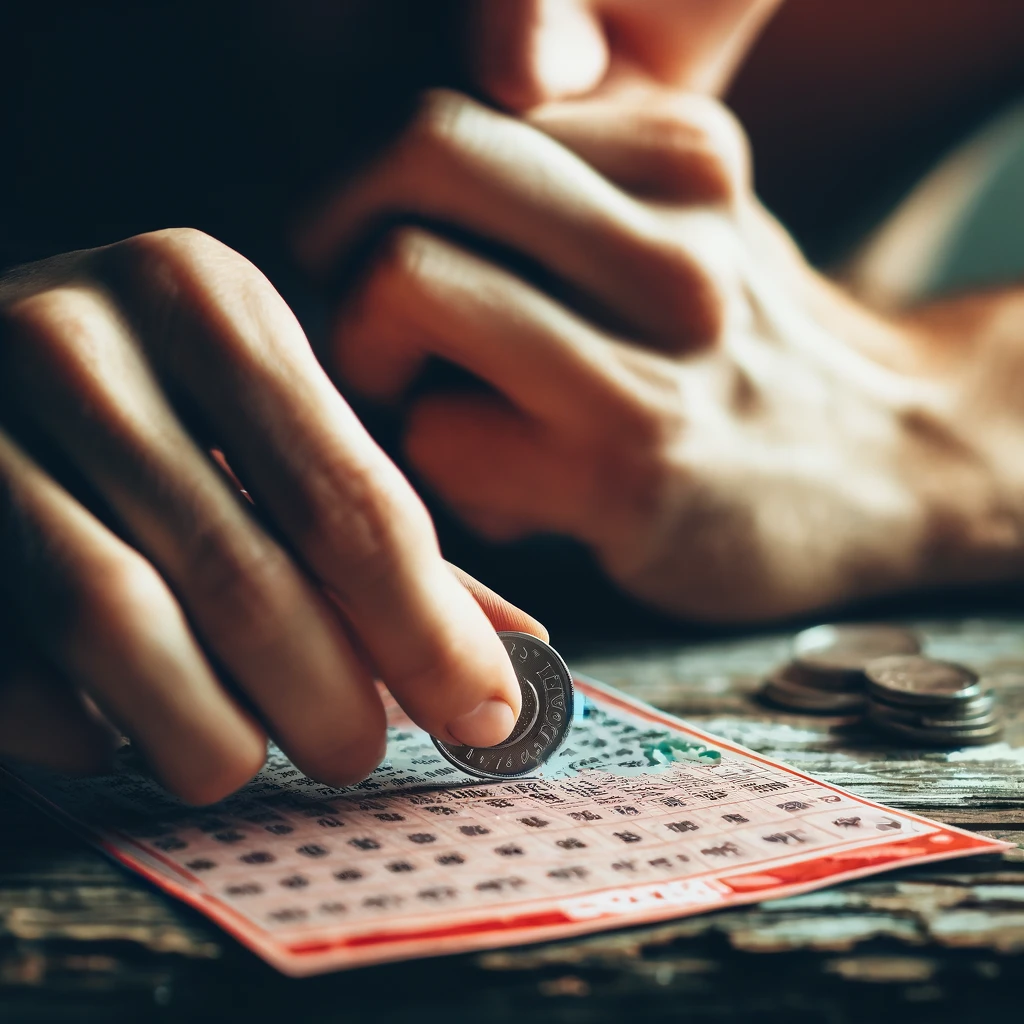Lottery
Definition
A means of raising money by selling numbered tickets and giving prizes to the holders of numbers drawn at random.
Parts of Speech
- Noun
Pronunciation
American English
- IPA Pronunciation: /ˈlɑːtəri/
- Respelling: LAH-tuh-ree (with "LAH" as in "father" and "tuh" as in "cut")
British English
- IPA Pronunciation: /ˈlɒtəri/
- Respelling: LOT-uh-ree (with "LOT" as in "pot" and "uh" as in "sofa")
In both dialects, "lottery" places the primary stress on the first syllable. The American pronunciation has a longer "ah" sound in the first syllable, while the British pronunciation has a shorter "o" sound.
Etymology
The word "lottery" comes from the Dutch noun "loterij", which derives from the Dutch noun "lot", meaning "fate".
Derivatives
- Lotteries
- Lottery-ticket
- Lottery-winner
- Lottery-funded
- Lottery-bound
Synonyms
- Raffle
- Draw
- Sweepstake
Antonyms
- Guarantee
- Certainty
- Assurance
Usage
Lotteries are commonly used as a means of raising funds for public projects, charities, and other purposes. They can take various forms, including scratch-off tickets, number drawings, and instant-win games.
- She bought a lottery ticket every week, hoping to win big.
- The funds for the school were raised through a local lottery.
Related Terms
- Gambling: The act of risking money or something of value on an event with an uncertain outcome.
- Jackpot: A large cash prize in a game or lottery, typically one that accumulates until it is won.
- Ticket: A piece of paper or card that gives the holder a chance to participate in a lottery or similar game.
Detailed Definition
Noun
- Lottery (Noun): A means of raising money by selling numbered tickets and giving prizes to the holders of numbers drawn at random.
- Example: "The state lottery funds many public education programs."
- Lottery (Noun): A situation whose outcome is determined by chance.
- Example: "Winning the contract was a bit of a lottery, considering how many companies were bidding."
lottery



🇨🇳 Mandarin
- 彩票 (Cǎipiào)
- IPA: [tsʰài.pjàʊ]
- Respell: Tsai-pyao
- 抽奖 (Chōujiǎng)
- IPA: [ʈʂʰóu.tɕjàŋ]
- Respell: Chow-jyang
🇮🇳 Hindi
- लॉटरी (Lŏṭarī)
- IPA: [lɔːʈəriː]
- Respell: Law-tuh-ree
- सौभाग्य खेल (Saubhāgya khel)
- IPA: [saʊbʱaːgjə kʰel]
- Respell: Saub-hag-ya khel
🇪🇸 Spanish
- Lotería
- IPA: [loteˈɾia]
- Respell: Lo-te-ree-a
- Sorteo
- IPA: [soɾˈteo]
- Respell: Sor-tay-oh
🇫🇷 French
- Loterie
- IPA: [lɔtʁi]
- Respell: Lot-ree
- Tirage au sort
- IPA: [tiʁaʒ o soʁ]
- Respell: Tee-razh oh sor
🇸🇦 Modern Standard Arabic
- يانصيب (Yānṣīb)
- IPA: [jaːnˈsˤiːb]
- Respell: Yaan-seeb
- قرعة (Qur'ah)
- IPA: [qʊˈrɑːʔɑ]
- Respell: Qur-ah
🇧🇩 Bengali
- লটারি (Loṭārī)
- IPA: [loʈaːri]
- Respell: Lo-ta-ree
- ভাগ্যক্রীড়া (Bhāgyakrīḍā)
- IPA: [bʱaːɡjokriːɽaː]
- Respell: Bhag-yo-kree-ra
🇷🇺 Russian
- Лотерея (Lotereya)
- IPA: [lɐtʲɪˈrʲejə]
- Respell: Lo-te-ree-ya
- Розыгрыш (Rozygrysh)
- IPA: [rɐˈzɨɡrɨʂ]
- Respell: Ro-zy-grysh
🇵🇹 Portuguese
- Loteria
- IPA: [lɔtɛˈɾiɐ]
- Respell: Lo-te-ree-a
- Sorteio
- IPA: [soɾˈteju]
- Respell: Sor-tay-oo
🇮🇩 Indonesian
- Lotre
- IPA: [ˈlɔtrɛ]
- Respell: Lo-treh
- Undian
- IPA: [unˈdi.an]
- Respell: Oon-dee-an
🇩🇪 German
- Lotterie
- IPA: [lɔˈtʁiː]
- Respell: Lot-ree
- Verlosung
- IPA: [fɛɐ̯ˈloːzʊŋ]
- Respell: Fair-loh-zoong
🇯🇵 Japanese
- 宝くじ (Takarakuji)
- IPA: [takaɾakɯdʑi]
- Respell: Ta-ka-ra-koo-gee
- 抽選 (Chūsen)
- IPA: [tʃɯːsɛn]
- Respell: Choo-sen
🇻🇳 Vietnamese
- Xổ số
- IPA: [sɔ sɔ]
- Respell: So so
- Quay số
- IPA: [kwaɪ̯ sɔ]
- Respell: Kwai so
🇰🇷 Korean
- 복권 (Bokgwon)
- IPA: [bok.kwʌn]
- Respell: Bok-kwon
- 추첨 (Chucheom)
- IPA: [t͡ɕʰu.t͡ɕʰʌm]
- Respell: Choo-cheom
🇵🇰 Urdu
- لاٹری (Lāṭarī)
- IPA: [laːʈəriː]
- Respell: La-ta-ree
- قرعہ اندازی (Qura'a andāzī)
- IPA: [qʊrɑːʔ əndɑːziː]
- Respell: Qur-ah an-da-zee





